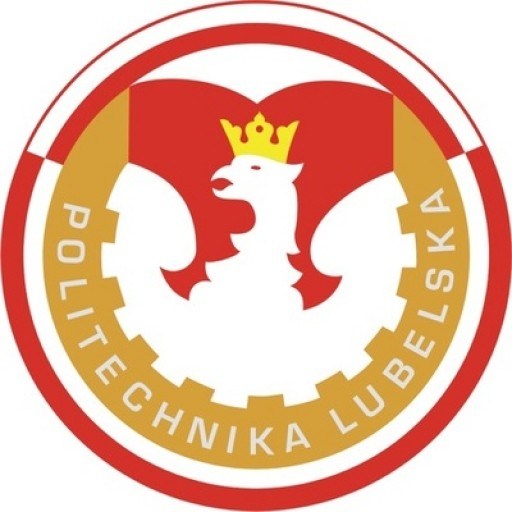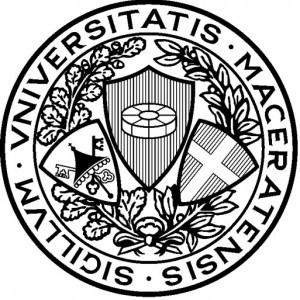The Architecture program with a specialization in Diagnosis and Repair of Buildings at Lublin University of Technology offers students a comprehensive education that combines fundamental architectural principles with specialized knowledge in the assessment, maintenance, and restoration of existing structures. This program is designed to prepare future professionals capable of effectively diagnosing structural and material issues in buildings, devising appropriate repair strategies, and implementing solutions that ensure safety, functionality, and sustainability. Throughout the course of study, students gain a solid foundation in architecture, including design, construction technology, materials science, and environmental considerations, while also developing expertise in building diagnostics, preventive maintenance, and renovation techniques. The curriculum emphasizes hands-on learning through laboratory work, field inspections, and real-world case studies, equipping students with the technical skills and analytical thinking required to address complex building issues. Graduates of this specialization are well-equipped to work in various sectors such as construction companies, consulting firms, heritage preservation organizations, and public administration, focusing on the preservation and revitalization of architectural monuments, modern buildings, and infrastructure. The program also emphasizes sustainable practices, encouraging students to consider eco-friendly solutions in their repair and diagnosis projects. With a combination of theoretical knowledge and practical experience, students are prepared to contribute to the improvement and prolongation of the lifespan of buildings, ensuring they meet safety standards and modern functional requirements. The school collaborates with industry professionals and organizations, providing students with internships and opportunities to engage with real diagnostic and repair projects. Graduates from this program will be capable of performing complex diagnostics, designing repair and strengthening systems, and managing building refurbishment projects in compliance with current regulations and standards. Overall, the specialization in Diagnosis and Repair of Buildings offers a unique career pathway for those interested in the technical, historical, and sustainable aspects of building preservation and maintenance, making it an ideal choice for aspiring engineers and architects committed to enhancing the longevity and safety of our built environment.
The specialization in Diagnosis and Repair of Buildings within the Architecture programme at Lublin University of Technology is designed to equip students with advanced knowledge and practical skills necessary for the effective assessment, preservation, and renovation of existing building structures. This field focuses on the detailed analysis of structural integrity, material properties, and the identification of damages or defects that may compromise the safety and functionality of buildings. Students will learn to utilize modern diagnostic tools and techniques, including non-destructive testing methods, structural health monitoring, and the use of digital technologies such as Building Information Modeling (BIM) to create accurate assessments of building conditions.
The curriculum emphasizes understanding the causes of deterioration, whether due to environmental factors, material aging, or improper construction Work. Students will study the principles of conservation and restoration, enabling them to develop sustainable solutions that respect the historical significance of heritage structures while adapting them to contemporary standards. The program covers various repair techniques, including structural reinforcement, material replacement, and the application of innovative materials and technologies that prolong the lifespan of buildings.
Throughout the programme, students engage in a combination of theoretical coursework and practical internships, allowing them to gain hands-on experience in diagnostic processes, repair planning, and project management. They will be trained to create detailed repair designs and cost estimates, collaborate effectively with engineers and construction specialists, and ensure that repair interventions meet safety regulations and conservation guidelines.
The specialization aims to prepare graduates for careers in architectural restoration firms, consulting agencies, construction companies, and public institutions involved in the preservation and modernization of the built environment. By acquiring in-depth expertise in building diagnostics and repair techniques, students will be equipped to contribute significantly to the sustainable development and maintenance of architectural heritage, ensuring that buildings remain safe, functional, and culturally valuable for future generations.
Program requirements for the Architecture specialization in Diagnosis and Repair of Buildings at Lublin University of Technology include a strong foundation in architectural design, engineering principles, and building technology. Prospective students are typically required to have completed secondary education with a focus on sciences such as physics and mathematics, illustrating their capability to handle technical and analytical coursework. Prior background in art and design may be advantageous but is not mandatory.
Applicants must submit their completed application forms along with official transcripts detailing their academic performance. Proof of proficiency in English, such as results from recognized language tests or previous education conducted in English, is generally required to ensure students can effectively engage with coursework and academic literature. Additionally, candidates may need to present a motivation letter or personal statement outlining their interest in building diagnosis and repair, and their career aspirations within this specialized field.
Admission procedures often include an interview or assessment to evaluate the applicant's knowledge of architectural principles and their motivation for choosing this specialization. Some programs may also require a portfolio of previous work or project documentation demonstrating relevant skills or experiences related to architecture or engineering.
Candidates are expected to possess basic computer skills, particularly proficiency in CAD software and other relevant design tools, as these are integral to the curriculum. Knowledge of construction materials, methods, and architecture history can provide an advantage but might not be strictly necessary at the initial application stage.
Lastly, applicants should have a strong interest in sustainable building practices, structural integrity, and the technical aspects of repairing and diagnosing issues in existing structures. The program is designed to develop highly skilled professionals capable of addressing complex building problems through innovative solutions, technical expertise, and interdisciplinary cooperation.
The financing of the Architecture specialization: Diagnosis and Repair of Buildings program at Lublin University of Technology is primarily supported through a combination of public funding, student tuition fees, and university resources. As a public university in Poland, Lublin University of Technology benefits from governmental funding allocated for higher education institutions, which helps subsidize the operational costs, faculty salaries, and infrastructure development necessary for delivering quality education in architecture. Tuition fees paid by domestic and international students constitute a significant portion of the program's revenue, enabling the university to invest in modern educational tools, laboratories, and research initiatives specific to building diagnostics and repair techniques. The program also receives financial support through EU structural funds and national grants aimed at promoting sustainable development, innovation in construction, and preservation of historic buildings, aligning with the specialty’s focus on diagnosis and repair.
Students may have access to scholarships, grants, and financial aid programs offered by the Polish government or the university itself, which can offset the cost of tuition and living expenses, making education more accessible. The university also emphasizes fostering cooperation with industry partners, which can provide funding for research projects, internships, and practical training modules embedded within the program. Such collaborations not only enhance the learning experience but also generate additional funding streams dedicated to the continuous development of the program.
In terms of infrastructure investments, the university allocates resources for specialized laboratories, diagnostic equipment, and repair technology tools essential for practical training in building diagnostics and repair. This investment supports both the educational and research components of the program, ensuring that students gain hands-on experience with real-world building assessment and repair processes. Overall, the financing strategy ensures the sustainability and continuous improvement of the Architecture specialization: Diagnosis and Repair of Buildings, advancing the university’s goal of preparing highly skilled professionals to meet industry demands in building conservation, diagnostics, and sustainable repair methodologies.
The Architecture program with a specialization in Diagnosis and Repair of Buildings at the Lublin University of Technology is designed to equip students with comprehensive knowledge and practical skills required to assess, diagnose, and restore various types of buildings. The curriculum emphasizes a multidisciplinary approach, integrating principles from architectural design, structural engineering, material science, and conservation techniques to ensure that future professionals can effectively address issues related to the preservation and rehabilitation of buildings.
Students engaging in this specialization will learn methods for detecting structural faults, analyzing building materials, and implementing repair strategies that adhere to current standards and sustainable practices. The program also covers topics such as building pathology, non-destructive testing methods, historical building conservation, and modern repair technologies. Through a combination of theoretical instruction, case studies, laboratory work, and field training, participants will develop the competencies needed to undertake diagnostic processes and formulate effective repair solutions.
The program aims to prepare graduates for careers in building inspection, restoration consultancy, construction supervision, and research. Students will also gain knowledge about legal regulations related to building repair and conservation, as well as project management skills necessary for coordinating repair projects from start to finish. Lublin University of Technology’s facilities include laboratories equipped with modern diagnostic and testing equipment, which provide students with hands-on experience.
Graduates of this program will be capable of working within interdisciplinary teams, liaising with architects, engineers, and conservation specialists to ensure that building repairs are performed to high standards, preserving architectural heritage while ensuring safety and functionality. The specialization aligns with current trends emphasizing sustainable restoration practices and the use of innovative materials. The degree ultimately aims to supply qualified professionals who can contribute substantially to the preservation and revitalization of the built environment, supporting Poland’s and Europe's architectural heritage.
The duration of the program typically spans three and a half to four years, culminating in a Master's degree in Architecture with a specialization in Diagnosis and Repair of Buildings. The program is structured to balance coursework, practical training, and research components, ensuring graduates are well-prepared for professional challenges in the field of building diagnosis and repair. The program also encourages development of critical thinking, problem-solving skills, and ethical considerations in the context of building conservation and repair work.









